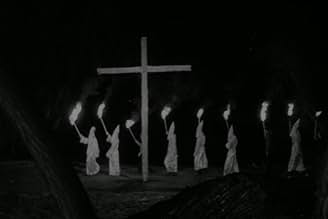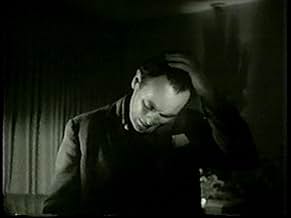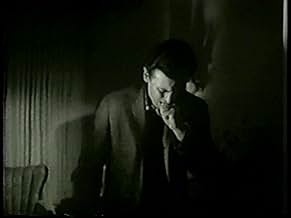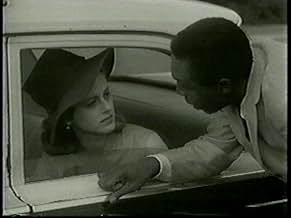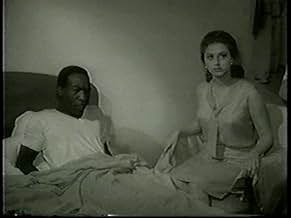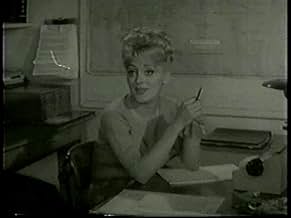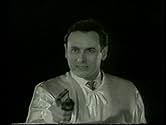Adicionar um enredo no seu idiomaAfter a black man's daughter is killed by the KKK, he seeks revenge by becoming a Klansman.After a black man's daughter is killed by the KKK, he seeks revenge by becoming a Klansman.After a black man's daughter is killed by the KKK, he seeks revenge by becoming a Klansman.
- Direção
- Roteiristas
- Artistas
James McEachin
- Lonnie
- (as Jimmy Mack)
W. McLennard
- Wallace
- (as William McLennard)
R.L. Armstrong
- Jenkins
- (as Tex Armstrong)
- Direção
- Roteiristas
- Elenco e equipe completos
- Produção, bilheteria e muito mais no IMDbPro
Avaliações em destaque
What can be said? This movie is as disturbing now as it was when it was made. But the acting is so irregular. Sometimes it's comically bad which makes it extremely uncomfortable. The ending is also disappointing.
The legendary schlock director, creator of such memorable productions as "Astro-Zombies" and "The Doll Squad", actually takes himself seriously for this reasonably effective, interesting comment on race relations in the deep South, circa 1966. This is a time when a civil rights law had been passed, and the white people in this story are none too happy about that. Some of the Klansmen in the small Alabama town of Turnerville try to fire bomb a church and kill the daughter of a man named Jerry Ellsworth (Richard Gilden). Jerry, you see, is a light skinned black who realizes that he could pass for white, so he does so and manages to infiltrate the KKK so that he can get his revenge.
One might have a hard time believing that this is the same Mikels who made those other pictures. It works pretty well, and one can get caught up in the story, written by John T. Wilson and Art Names, and be eager to see the antagonists get their just desserts. This is all done in a very straightforward, no frills manner, and it does get a lot of juice from a standout characterization by Max Julien, later star of "The Mack", as a young revolutionary with a "by any means necessary" type of approach. His scenes are the best in the movie. But star Gilden ('Death Valley Days') does a decent job as well. Harry Lovejoy as Rook is good at playing just the sort of guy who deserves his comeuppance. James McEachin (star of the short-lived 'Tenafly' TV series) makes a strong film debut as Lonnie. Look for Byrd Holland, also the makeup artist on this show, in a small role as the mayor, and B movie legend Gary Kent as Wilkins.
Sharp cinematography by Robert Caramico and atmospheric music by Jaime Mendoza-Nava are solid attributes, and the movie comes complete with a theme song that's a real hoot.
I agree with another review here: it would be too easy to dismiss this as mere exploitation; it does have more depth than some people would expect. It's worth a look.
Eight out of 10.
One might have a hard time believing that this is the same Mikels who made those other pictures. It works pretty well, and one can get caught up in the story, written by John T. Wilson and Art Names, and be eager to see the antagonists get their just desserts. This is all done in a very straightforward, no frills manner, and it does get a lot of juice from a standout characterization by Max Julien, later star of "The Mack", as a young revolutionary with a "by any means necessary" type of approach. His scenes are the best in the movie. But star Gilden ('Death Valley Days') does a decent job as well. Harry Lovejoy as Rook is good at playing just the sort of guy who deserves his comeuppance. James McEachin (star of the short-lived 'Tenafly' TV series) makes a strong film debut as Lonnie. Look for Byrd Holland, also the makeup artist on this show, in a small role as the mayor, and B movie legend Gary Kent as Wilkins.
Sharp cinematography by Robert Caramico and atmospheric music by Jaime Mendoza-Nava are solid attributes, and the movie comes complete with a theme song that's a real hoot.
I agree with another review here: it would be too easy to dismiss this as mere exploitation; it does have more depth than some people would expect. It's worth a look.
Eight out of 10.
Black Klansman, The (1966)
** (out of 4)
Well meaning but wondering exploitation film from director Ted V. Mikels. The KKK are striking terror after the Civil Rights agreement so they decide to bomb a church where a black man is killed as well as a little girl. The father of the little girl, a light skinned man, decides to join the Klan so that he can get revenge. I went into this film expecting exploitation trash but the film actually tries to pass a message and doesn't really exploit the seriousness of the subject matter. The opening scenes of the Civil Rights laws being passed are handled well as one black man wants to go to a white diner for coffee. The Klan scenes are well done and show the horrors of the time and there's some interesting discussion about what violence can actually get done. The only problem is that the story runs out of ideas around the fifty-minute mark and that leaves us with nearly forty-minutes of nothing happening until the final where the father finally gets to see the man responsible for his daughter's death.
** (out of 4)
Well meaning but wondering exploitation film from director Ted V. Mikels. The KKK are striking terror after the Civil Rights agreement so they decide to bomb a church where a black man is killed as well as a little girl. The father of the little girl, a light skinned man, decides to join the Klan so that he can get revenge. I went into this film expecting exploitation trash but the film actually tries to pass a message and doesn't really exploit the seriousness of the subject matter. The opening scenes of the Civil Rights laws being passed are handled well as one black man wants to go to a white diner for coffee. The Klan scenes are well done and show the horrors of the time and there's some interesting discussion about what violence can actually get done. The only problem is that the story runs out of ideas around the fifty-minute mark and that leaves us with nearly forty-minutes of nothing happening until the final where the father finally gets to see the man responsible for his daughter's death.
Though I never heard of any of the actors except the excellent James McEachin, nearly every single player gives a good to excellent performance.
It starts rather badly, and my thoughts were negative about the director, Ted V. Mikels, whose work is apparently mostly exploitative, and the nominal lead, Richard Gilden. But after a few more scenes, everything shifts into a higher gear and actors and director present us with a good movie.
At this writing, March of 2019, the film is 53 years old. Most of the worst aspects of the problem presented by the story have receded. While Ku Klux Klan and similar organizations still exist, they are generally discounted by most of the rest of the population.
Except: the U.S. "news" media and other Democrats and other left-collectivists would have us believe that every problem in these United States derives from "racism" and that most people, especially those who don't buy into the left-collectivist belief system, are "racists."
In addition, among the left-collectivists, including the "news" media, there is a sickening and disgusting emphasis placed on group identity, which is, in fact, what is wrong with such groups as the KKK, but is somehow accepted when it's from Democrat candidates.
In fact, each of us is an individual, no matter what our skin color. And one point made in this film is that the protagonist, with one black parent, looks white enough to be allowed membership in the Klan.
Not stressed in this movie is the notion that one's skin color or ethnicity cannot lead to any particular belief system. But it's a fact.
Yes, one's culture, one's neighbors, one's schooling can certainly bend a person's thinking, but not that person's skin color, not race or ethnicity.
The premise of this mostly very well-done motion picture is excellent, it's timely, even after the decades since its premiere. The acting is first class, its picture of the rituals of the KKK certainly look real, almost, in spots, like a documentary.
I highly recommend this movie, under whichever title, even if the ending is a bit ambiguous. Very, very well done.
It starts rather badly, and my thoughts were negative about the director, Ted V. Mikels, whose work is apparently mostly exploitative, and the nominal lead, Richard Gilden. But after a few more scenes, everything shifts into a higher gear and actors and director present us with a good movie.
At this writing, March of 2019, the film is 53 years old. Most of the worst aspects of the problem presented by the story have receded. While Ku Klux Klan and similar organizations still exist, they are generally discounted by most of the rest of the population.
Except: the U.S. "news" media and other Democrats and other left-collectivists would have us believe that every problem in these United States derives from "racism" and that most people, especially those who don't buy into the left-collectivist belief system, are "racists."
In addition, among the left-collectivists, including the "news" media, there is a sickening and disgusting emphasis placed on group identity, which is, in fact, what is wrong with such groups as the KKK, but is somehow accepted when it's from Democrat candidates.
In fact, each of us is an individual, no matter what our skin color. And one point made in this film is that the protagonist, with one black parent, looks white enough to be allowed membership in the Klan.
Not stressed in this movie is the notion that one's skin color or ethnicity cannot lead to any particular belief system. But it's a fact.
Yes, one's culture, one's neighbors, one's schooling can certainly bend a person's thinking, but not that person's skin color, not race or ethnicity.
The premise of this mostly very well-done motion picture is excellent, it's timely, even after the decades since its premiere. The acting is first class, its picture of the rituals of the KKK certainly look real, almost, in spots, like a documentary.
I highly recommend this movie, under whichever title, even if the ending is a bit ambiguous. Very, very well done.
This film begins in Los Angeles with a black jazz musician by the name of "Jerry Ellsworth" (Richard Gilden) learning that his young daughter has just been killed by members of a racist organization in the small town of Turnerville, Alabama. Seeking revenge upon the people that committed this act, he immediately boards a flight to Turnerville where he hopes his light-skinned complexion will allow him to masquerade as a white man long enough for him to infiltrate the local chapter of the KKK. What he doesn't know, however, is that his white girlfriend "Andrea" (Rima Kutner) and his good friend "Lonnie" (James McEachin) have followed right behind him and their appearance creates unforeseen difficulties which endangers his extremely hazardous plan. Now, rather than reveal any more, I will just say that this was a fairly interesting film which was hindered somewhat by the rather low-budget production values and mediocre acting of all concerned. It does, however, serve as a decent precursor to the blaxploitation films which followed a few years later and for that reason I have rated this film accordingly. Average.
Você sabia?
- CuriosidadesMax Julien (Raymond) and Whitman Mayo (Alex) are both members of Kappa Alpha Psi Fraternity Inc.
- ConexõesFeatured in The Wild World of Ted V. Mikels (2008)
- Trilhas sonorasThe Black Klansman
By Tony Harris
Principais escolhas
Faça login para avaliar e ver a lista de recomendações personalizadas
- How long is The Black Klansman?Fornecido pela Alexa
Detalhes
Bilheteria
- Orçamento
- US$ 80.000 (estimativa)
- Tempo de duração1 hora 28 minutos
- Cor
- Mixagem de som
- Proporção
- 1.85 : 1
Contribua para esta página
Sugerir uma alteração ou adicionar conteúdo ausente

Principal brecha
By what name was The Black Klansman (1966) officially released in India in English?
Responda
